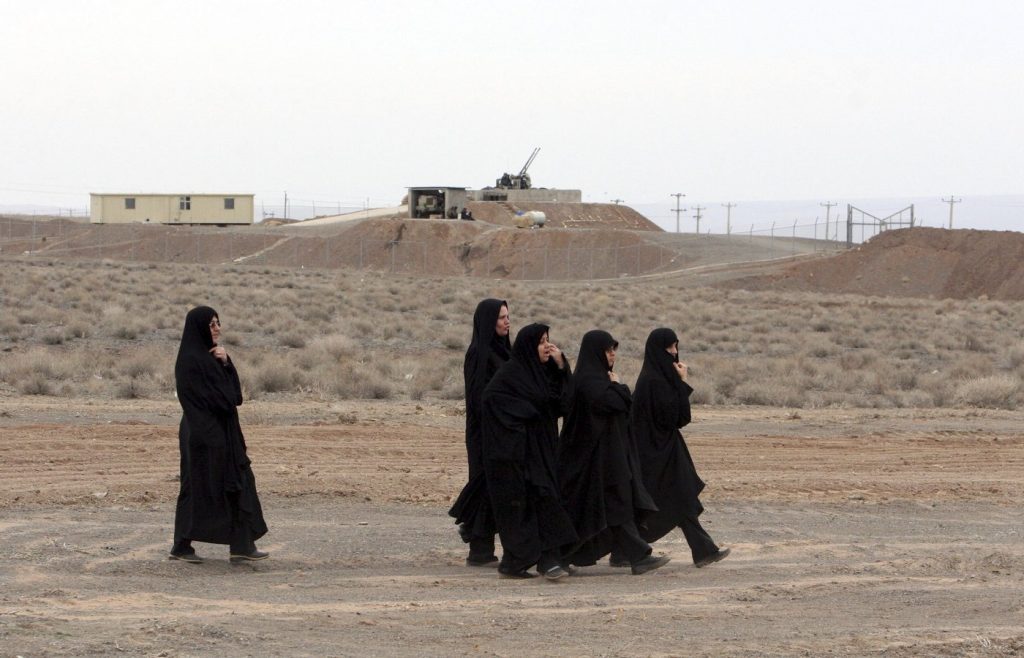Iran is set to hold a call with France, Germany, and the United Kingdom on Friday as these European nations threaten to reimpose United Nations sanctions on Tehran regarding its nuclear program. This conversation comes amid an impending deadline of August 31, set by the three nations, for Iran to reach a "satisfactory solution" addressing concerns over its nuclear activities.
The impending discussion is yet another chapter in the strained relations between Iran and Western nations concerning its atomic program, which has reportedly been enriching uranium near weapons-grade levels. This development follows a significant military escalation illustrated by the 12-day Iran-Israel war in June, which also involved U.S. airstrikes on Iranian nuclear sites after diplomatic attempts to resolve the ongoing crisis earlier this year were unsuccessful.
A review of history reveals the complex timeline surrounding Iran’s nuclear ambitions. In 1967, Iran acquired the Tehran Research Reactor as part of the U.S.'s "Atoms for Peace" initiative. However, with the overthrow of Shah Mohammad Reza Pahlavi in 1979 and the subsequent Islamic Revolution led by Ayatollah Ruhollah Khomeini, Iran's nuclear program fell dormant due to intense international scrutiny.
Significant developments resumed in August 2002 when Iran's secret Natanz nuclear enrichment facility was exposed by Western intelligence and Iranian opposition groups. The subsequent years saw a mix of diplomatic negotiations and aggressive postures, designated by Iran's announcement in February 2006 to restart uranium enrichment. This decision prompted the U.K., France, and Germany to exit negotiations, escalating tensions further.
The situation continued to worsen with the disputed re-election of Mahmoud Ahmadinejad in June 2009, sparking widespread protests in Iran. Diplomatic overtures began to surface under the Obama administration, including secret backchannel communications in 2009 and face-to-face discussions in Oman by 2012. The culmination of these efforts occurred on July 14, 2015, when Iran reached a long-term nuclear agreement with world powers that limited its uranium enrichment in exchange for the lifting of economic sanctions.
However, the agreement unraveled in May 2018 when President Donald Trump unilaterally withdrew the U.S. from the deal, deeming it the "worst deal ever.” Following this, Iran began to reverse its compliance in May 2019. The situation escalated further in January 2020 with the assassination of Iranian General Qassem Soleimani by a U.S. drone strike, leading to retaliatory Iranian missile strikes on U.S. bases in Iraq.
Throughout 2021 and into 2022, ongoing tensions saw multiple attacks on Iranian sites, including an explosion at Natanz, attributed to Israel. By April 2021, Iran was enriching uranium up to 60%, closer to weapons-grade levels of 90%. The geopolitical landscape shifted radically with Russia's invasion of Ukraine in February 2022, during which Ukraine received military support from Iran.
The timeline continued to build in intensity leading up to recent events, notably the October 7, 2023, attack by Hamas on Israel, marking the start of unprecedented conflict involving Iran's support for the militants. The warfare expanded further when in November, a Houthi rebel attack through the Red Sea earned engagement from the U.S. Navy. Fast forward to April 2024, Iran launched a direct, large-scale missile attack on Israel, sparking immediate military responses.
Throughout 2024 and into 2025, diplomatic efforts fluctuated as tensions heightened with significant incidents leading to Israeli airstrikes against Iranian military locations. By mid-2025, attempts for negotiations resumed with various rounds of indirect talks taking place, albeit with limited success.
As the August 31 deadline looms, the call between Iran and the three European powers symbolizes the precarious state of global security and diplomacy surrounding Iran's nuclear capabilities. With both sides preparing for possible sanctions and military actions, the world watches closely, bracing for the outcomes that may arise from these tense negotiations.











